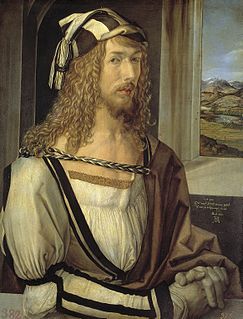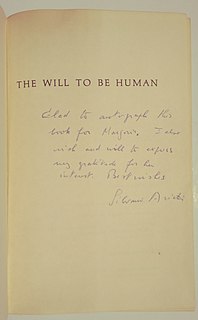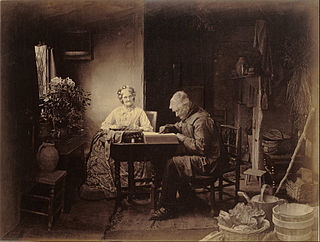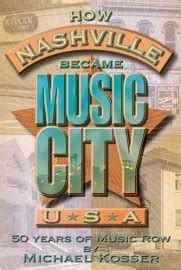A Quote by Albrecht Durer
An artist of understanding and experience can show more of his great power and art in small things roughly and rudely done, than many another in a great work. A man may often draw something with his pen on a half sheet of paper in one day . . . . and it shall be fuller of art and better than another's great work whereon he hath spent a whole year's careful labor.
Related Quotes
The person who appreciates a great work of art has the feeling that the work grows in him as he becomes involved in a prolonged capturing of emerging marginal meanings. He feels that he, too, is creative, that he himself is adding to his experience and understanding. Moreover, he wants to confront the work of art many times. He is not easily tired of it, as he would be had he read a purely logical statement. He realizes that the work of art does not merely transmit information; it produces pleasure.
If idioms are more to be born than to be selected, then the things of life and human nature that a man has grown up with--(not that one man's experience is better than another's, but that it is 'his.')--may give him something better in his substance and manner than an over-long period of superimposed idiomatic education which quite likely doesn't fit his constitution. My father used to say, 'If a poet knows more about a horse than he does about heaven, he might better stick to the horse, and some day the horse may carry him into heaven'
The great artist when he comes, uses everything that has been discovered or known about his art up to that point, being able to accept or reject in a time so short it seems that the knowledge was born with him, rather than that he takes instantly what it takes the ordinary man a lifetime to know, and then the great artist goes beyond what has been done or known and makes something of his own.
I once asked a distinguished artist what place he gave to labor in art. "Labor," he in effect said, "is the beginning, the middle, and the end of art." Turning then to another--"And you," I inquired, "what do you consider as the great force in art?" "Love," he replied. In their two answers I found but one truth.
That is what diminishes the artist and his song. The artist is now hermetically sealed. The publishing company got him his deal and they expect to profit from his songs. So what if he is a better singer than a songwriter; let's put him in a room with a real songwriter. Something great is bound to come...except very often nothing great comes out of such contrived match-ups. Nobody knows where a great song comes from, and that's why so many writers credit the Lord as a co-writer (though I notice they never offer Him half the writer's royalties) when they come up with a real gem.
We are not being true to the artist as a man if we consider his art work junk simply because we differ with his outlook on life. Christian schools, Christian parents, and Christian pastors often have turned off young people at just this point. Because the schools, the pastors, and the parents did not make a distinction between technical excellence and content, the whole of much great art has been rejected with scorn and ridicule. Instead, if the artist's technical excellence is high, he is to be praised for this, even if we differ with his world view. Man must be treated fairly as man.
Indeed, the great Leonardo (da Vinci) remained like a child for the whole of his life in more than one way. It is said that all great men are bound to retain some infantile part. Even as an adult he continued to play, and this was another reason why he often appeared uncanny and incomprehensible to his contemporaries.
A life lived in chaos is an impossibility for the artist. No matter how unstructured may seem the painter's garret in Paris or the poet's pad in Greenwich Village, the artist must have some kind of order or he will proudce a very small body of work. To create a work of art, great or small, is work, hard work, and work requires discipline and order.
No more than a famous master can be replaced and another take over the completion of the half-finished painting he has left behind can the great poet and thinker, the great statesman and the great soldier, be replaced. For their activity lies always in the province of art. It is not mechanically trained but inborn by God's grace.
What great philosophers do for us is not to hand out such an all-purpose system. It is to light up and clarify some special aspect of life, to supply conceptual tools which will do a certain necessary kind of work. Wide though that area of work may be, it is never the whole, and all ideas lose their proper power when they are used out of their appropriate context. That is why one great philosopher does not necessarily displace another, why there is room for all of them and a great many more whom we do not have yet.








































